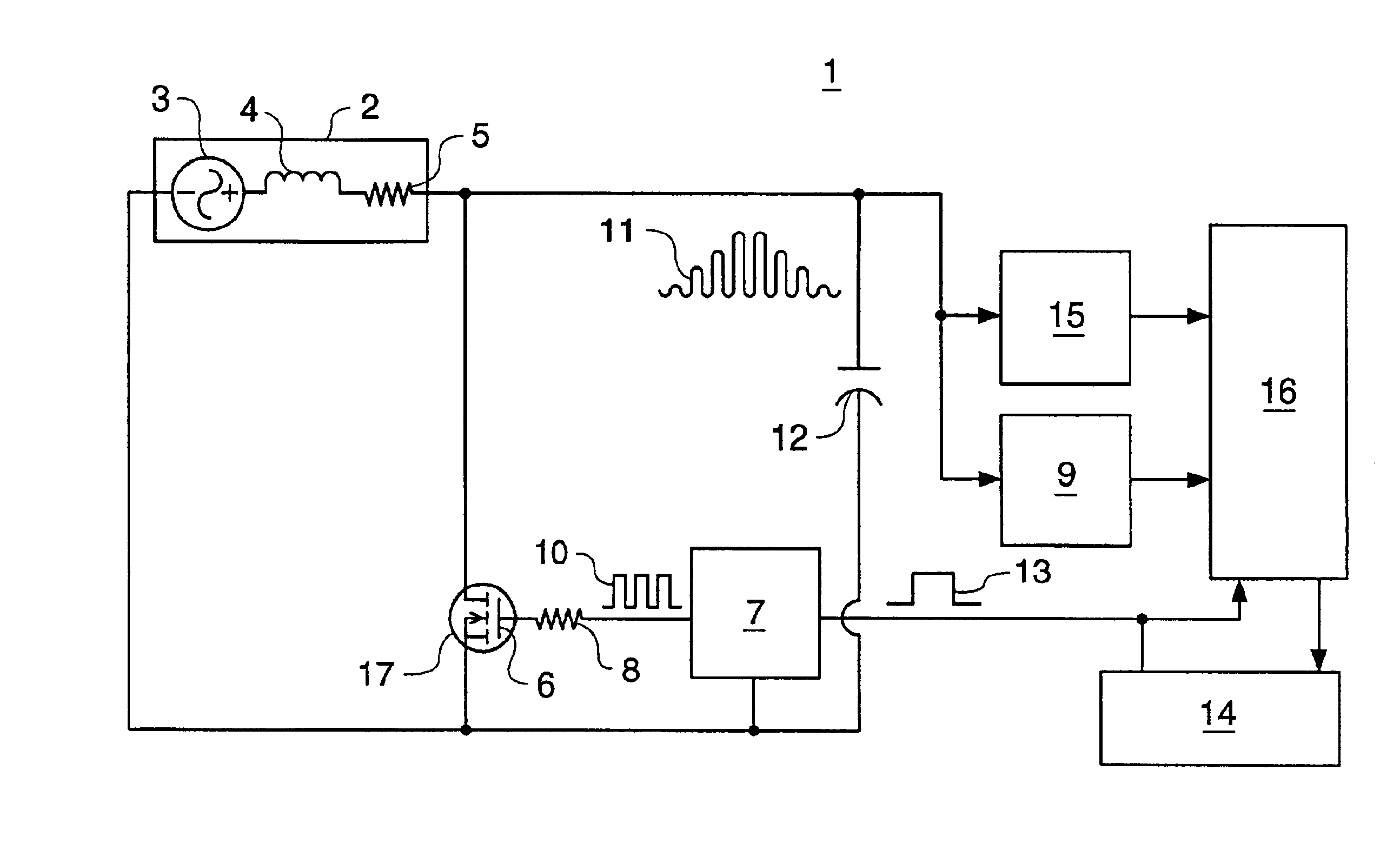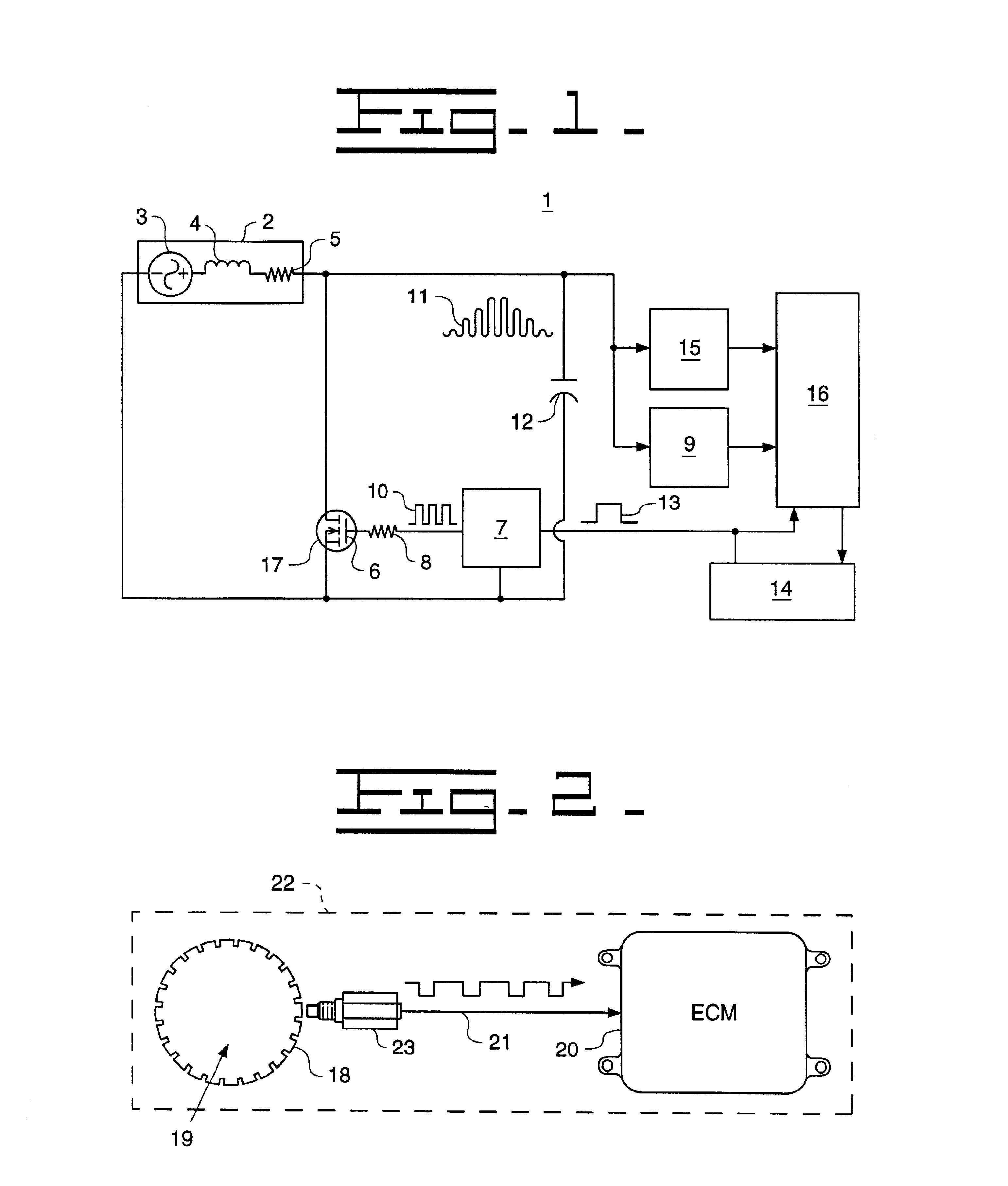Resonant circuit for increasing variable reluctance sensor output
a variable reluctance and output technology, applied in adaptive control, computer control, instruments, etc., can solve the problems of low signal-to-noise ratio, substantial high-frequency electrical noise produced by other engine components, and various problems of related art vrs
- Summary
- Abstract
- Description
- Claims
- Application Information
AI Technical Summary
Benefits of technology
Problems solved by technology
Method used
Image
Examples
Embodiment Construction
[0013]An exemplary embodiment of the present invention provides an apparatus and method of more accurately sensing machine characteristics during a start-up phase of a machine and during normal operation of the machine. The following description uses a vehicle engine as an example only. As would be understood by one skilled in the art, this invention also is applicable to other types of machines having a rotating member.
[0014]FIG. 1 illustrates a schematic diagram of an apparatus as represented by a circuit 1 that measures a characteristic of a machine. The circuit 1 may be coupled to the machine, or it may be incorporated into the machine. The circuit 1 includes a variable reluctance sensor (VRS) 2. The VRS 2 generates a basic output signal having a variable amplitude and a basic frequency being representative of the characteristic of the machine. While the VRS 2 is preferably implemented as a single fine-wire coiled about a magnetic structure (e.g., permanent magnet), the circuit ...
PUM
 Login to View More
Login to View More Abstract
Description
Claims
Application Information
 Login to View More
Login to View More - R&D
- Intellectual Property
- Life Sciences
- Materials
- Tech Scout
- Unparalleled Data Quality
- Higher Quality Content
- 60% Fewer Hallucinations
Browse by: Latest US Patents, China's latest patents, Technical Efficacy Thesaurus, Application Domain, Technology Topic, Popular Technical Reports.
© 2025 PatSnap. All rights reserved.Legal|Privacy policy|Modern Slavery Act Transparency Statement|Sitemap|About US| Contact US: help@patsnap.com


